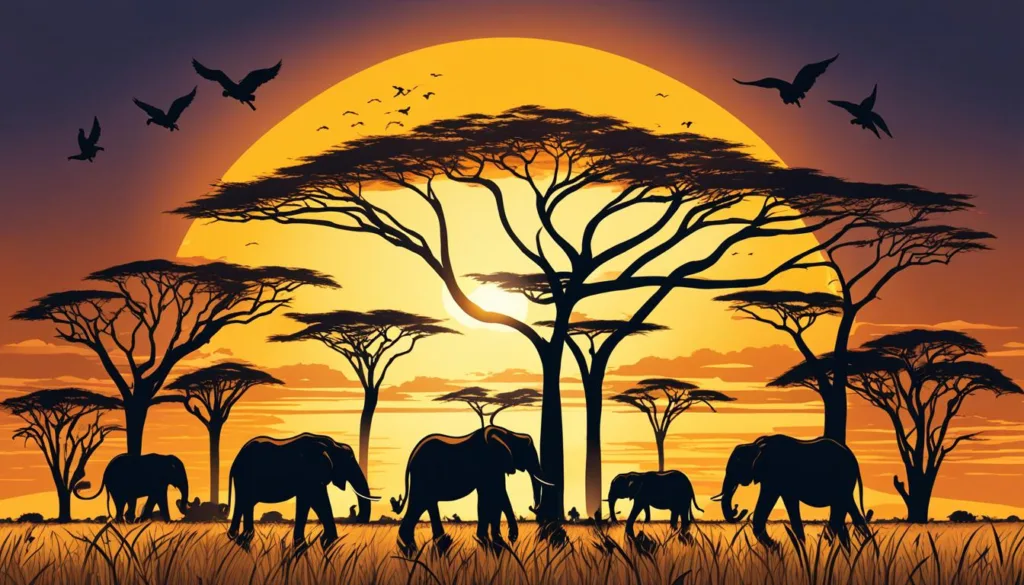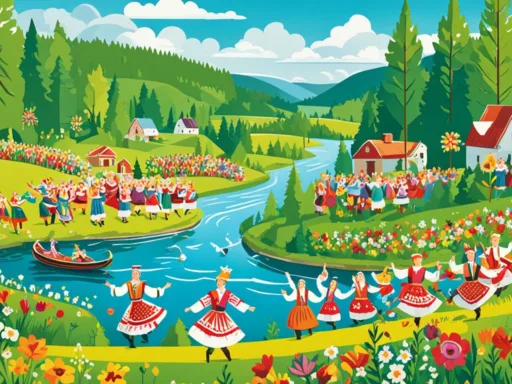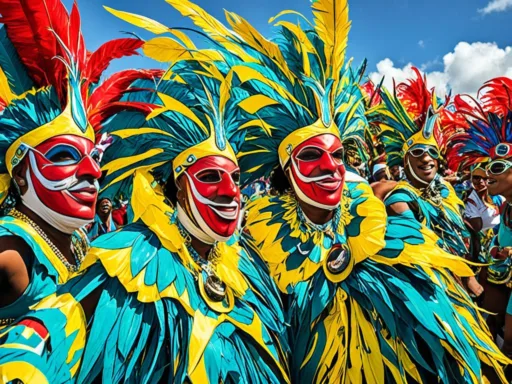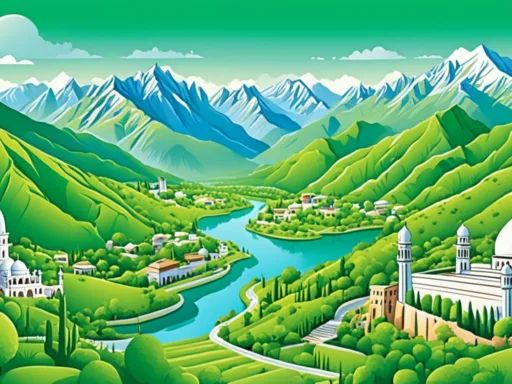Have you ever wondered when the magic moment strikes for experiencing the majestic wildlife, sumptuous Winelands, and sun-soaked beaches of South Africa? Travelers often muse about the optimal time to explore South Africa, but the answer isn’t just about seasons; it’s about the symphony of experiences at different times of the year. Unlike the predictable tourist season in South Africa, the country’s varied climate offers unique adventures for every kind of explorer. Whether you’re an avid birder, a relentless beach-goer, a wine connoisseur, or a wildlife enthusiast, the South Africa travel season unfurls a tapestry of opportunities across calendar pages. In this journey through the South African calendar, discover not just the best time to visit South Africa, but also how to create a travel itinerary that captures the essence of this vibrant nation at its prime.
Key Takeaways
- April, May, and September through November offer favorable weather and fewer tourists, making them some of the best months for visiting South Africa.
- Each season in South Africa boasts distinct attractions—whale watching in spring, beach festivities in summer, wine harvesting in fall, and prime safaris in winter.
- While South African summers are ideal for beach and festival lovers, early December can be a sweet spot for avoiding peak crowds.
- Autumn presents a perfect time for wine enthusiasts to partake in harvest celebrations with lessened tourism traffic.
- Winter months promise excellent safari conditions and spectacular surfing competitions in South Africa.
- Spring not only blooms with wildflowers but also offers incredible whale-watching experiences and great safari visibility.
Understanding South Africa’s Seasonal Contrasts
South Africa’s location at the southern tip of the African continent gifts it with one of the most distinctive climate patterns on the planet. This varied climate impacts when to visit South Africa, especially if you’re looking to maximize your travel experience. Knowing the South Africa climate guide and peak travel times in South Africa can help travelers make informed decisions about when to embark on their journey.
In the realm of South African weather, it is crucial to distinguish between the coastal and inland regions. Coastal areas, with cities like Cape Town, are known for their Mediterranean-climate and experience the bulk of their rainfall during the winter months of May through September. These cooler, wetter months might sound less appealing for beach activities, but they provide a cozy atmosphere for exploring the urban landscape or indulging in the coastal culinary scene.
Conversely, the inland plateau, which includes esteemed safari destinations such as the Kruger National Park, encounters its dry season during these same winter months. The clearer skies and sparse rainfall make it an ideal time for wildlife spotting, due to animals congregating around limited water sources.
| Region | Season | Climate Characteristics | Activities Suited |
|---|---|---|---|
| Cape Town & Coasts | Winter (May – Sep) | Cool to moderate temperatures, increased rainfall | Urban exploration, culinary experiences, whale watching |
| Kruger National Park & Plateaus | Winter (May – Sep) | Dry, pleasant days, chilly mornings | Game viewing, safari adventures |
| Cape Town & Coasts | Summer (Dec – Feb) | High temperatures, possibility of rain | Beach visits, festivals, outdoor activities |
| Kruger National Park & Plateaus | Summer (Dec – Feb) | Hot, humid conditions, occasional rains | Evening game drives, bird watching |
As we consider the peak travel times in South Africa, it becomes evident that they coincide with the end-of-year holidays and the Northern Hemisphere’s winter months, particularly along the coastline during December and January. Subsequently, travelers ought to be prepared for more crowded attractions and higher accommodation rates. The width of activities during South Africa’s summer, ranging from beach escapades to vibrant festivals, makes it an attractive season despite the influx of tourists.
A balance between pleasant weather and manageable tourist numbers is found during shoulder seasons. As an added bonus, spring and autumn present unique natural spectacles such as wildflowers blooming or whales breaching along the coasts. Understanding these seasonal contrasts lays the foundation for a trip that meets all your expectations, whether that’s sipping on a fine vintage during the ideal wine tasting climate or embarking on a memorable whale watching adventure.
Best Time to Visit South Africa: A Month-by-Month Guide
From the glistening beaches of its ample coastline to the intricate landscapes that house some of the world’s most exotic wildlife, South Africa beckons travelers year-round with its temperate climate. Whether you’re planning to lounge on the sun-drenched sands or explore the vast wilderness on safari, each season in South Africa offers a unique charm, transforming the continent’s southern tip into a versatile destination.

Summer Highs: Beach Bliss & Festive Vibes
Known for its sun-soaked South Africa’s summer, from December to February, the country becomes the perfect haven for beach lovers and revelers. Cape Town, in particular, becomes a hub of activity, where the best time to visit South Africa for beaches coincides with an array of cultural festivals and vibrant street markets that capture the essence of local life.
Autumn Transitions: Harvest Time in the Winelands
Transitioning into South Africa’s autumn season, March to May presents the idyllic setting to experience the harvest in the Winelands. Celebrated with jovial gatherings, this period is marked as the best time to explore South Africa’s Winelands, offering a palate of flavors set against a backdrop of golden vineyards.
Winter Wonders: Ideal Safari Conditions and Surf Challenges
Winter in South Africa is synonymous with adventure and wildlife. Ranging from June to August, it is the peak safari season in South Africa. The cooler, dry climate facilitates sublime safari experiences, firmly establishing this time as the best to visit South Africa for safaris. The waters of the Indian and Atlantic Oceans equally beckon with ideal conditions for seasoned surfers to prove their mettle against the challenging waves.
Spring Surprises: Blooming Beauty and Whale Encounters
With the advent of South Africa’s spring from September to November, the nation is awash with natural spectacles. Fields brim with wildflowers while bustling creatures make their grand entrance into the world. This season is also revered as the whale watching season in South Africa, with the Hermanus Whale Festival highlighting South Africa’s extensive offerings in wildlife and botanical diversity.
A Climate Guide for South Africa’s Diverse Regions
South Africa boasts a rich tapestry of climatic regions, offering travelers a year-round playground of diverse natural beauty and adventure. Understanding the seasonal nuances of the country’s distinct areas empowers you to plan your journey for the optimal time to explore South Africa. Whether longing for the hustle of Cape Town’s sunny beaches or the silent thrill of a safari in Kruger National Park, knowing the best times to visit these paradises can transform your trip into a lifetime memory.
Cape Town & Coastal Climates: When to Catch the Best Waves
The enchanting city of Cape Town, alongside South Africa’s extensive coastline, invites beach lovers and surfers to explore its waters. For surfers seeking the ultimate wave, the months from March to September promise excellent conditions that cater to every level. Beach-goers, on the other hand, will find the best time to visit Cape Town for sunbathing and swimming is from November to March, when spring gives way to warmer temps and clear skies, ideal for unveiling the city’s dynamic coastal charm.
Interior Plateaus & The Kruger National Park: Peak Game Viewing Times
Heading inland, South Africa’s vast interior plateaus, particularly the iconic Kruger National Park, offer a starkly different climate. The Kruger National Park best season is undoubtedly during the drier winter months of May to September. This period, void of summer’s lushness, offers sparser vegetation and concentrated wildlife around waterholes, leading to exceptional safari experiences. For those considering when to visit South Africa’s interior plateaus, the cooler temperatures of winter make not only for pleasant days but also mystical mornings, as the sunrise greets stirring wildlife amid the dew.
South Africa’s Ideal Safari Seasons: From the Kruger to the Kalahari
Embarking on a safari in South Africa is an exhilarating adventure poised between the contrasting seasons — each providing a unique canvas of experiences. As we explore the optimal time for safaris in South Africa, we uncover the stark beauty of the African bush in varying shades: the vast, dry landscapes brimming with wildlife during South Africa’s dry season for safaris, and the lush, vivid expanses teeming with new life in the green season.
The Dry Season Advantage: Wildlife Galore
Safari in South Africa reaches its peak during the spell from May to October, known as the dry season. During this period, safaris are at their finest, with cool, dry weather clearing the typically opaque bush and drawing animals out as they congregate around dwindling water sources. Here’s why this is the best time to venture into the wild:
- Visibility: The sparser vegetation means game viewing is less obstructed, improving chances of spotting elusive species.
- Concentration of Wildlife: Animals are easier to track as they gravitate towards waterholes, making for breathtaking encounters.
- Comfortable Climate: Cooler temperatures create a more pleasant safari experience, whether on foot or in a vehicle.
- Prime Parks: Top safari destinations like Kruger National Park and Sabi Sands offer exceptional sightings of the Big Five.

Green Season Magic: Bright Birds and Baby Animals
In stark contrast, the green season in South Africa, running from October to May, dresses the landscapes in a vibrant tapestry of green. This time, often overlooked by many safari-goers, presents a unique and enchanting experience:
- Abundant Birdlife: Birders can revel in the sight and sounds of a greater variety and number of birds.
- Young Wildlife: It is a season of birth and growth, allowing visitors to witness the first steps and playful antics of new members in the animal kingdom.
- Photographic Opportunities: The rich hues of the greenery and the softer light conditions are perfect for capturing stunning wildlife images.
- Quieter Parks: With fewer tourists, guests can enjoy more exclusive and serene safari experiences.
Regardless of the season you choose, a safari in South Africa guarantees a treasure trove of memories. Whether you favor the crisp clarity and abundance of game in the dry season or the lush landscapes and intimate wildlife encounters of the green season, each safari journey writes its own spellbinding narrative.
| Dry Season (May – October) | Green Season (October – May) |
|---|---|
| High visibility of animals | Emerald landscapes |
| Cooler temperatures | Warmer weather |
| Less mosquitos, lower malaria risk | Livelier bird species diversity |
| Concentrated wildlife around waterholes | Sightings of newborn animals |
Soaking in the Sun: South Africa’s Prime Beach and Surfing Weather
Visitors seeking the ultimate beach and surf getaway should earmark the ideal months for a South Africa beach trip which span from November to March. During these sun-drenched months, the country’s coastlines burst to life with vibrant beach-goers and passionate surfers, all basking in the perfect coastal conditions. Renowned for its diverse and breath-taking shores, South Africa’s beaches offer something for every type of traveler.

The warm waves of November mark the beginning of the best time to slide onto the South African sands, with the coastal temperatures allowing for lazy beach days and a myriad of water sports. As the southern hemisphere summer peaks, so does the atmosphere on the beaches, with local and international tourists enjoying the transformative beauty of places like Clifton Beach and Camps Bay.
March, however, holds a special allure for surf aficionados, bringing in South Africa’s surfing conditions at their most favorable. From the powerful swells of Jeffreys Bay to the beginner-friendly waves of Muizenberg, South Africa is a surfer’s haven. Surfers around the world gravitate towards these shores, chasing the thrill of the perfect ride on some of the planet’s most revered waves.
The serene coastline of KwaZulu-Natal offers a unique beach experience with its balmy climate persisting even through the winter months. This all-year-round beach destination ensures that even off-peak travelers can enjoy the sun-kissed beaches and warm Indian Ocean waters. With a mix of popular spots and hidden gems, KwaZulu-Natal’s coast stands as a testament to South Africa’s endless summer.
A visit during these ideal months for South Africa beach trip promises the quintessential beach holiday, filled with golden sunsets, lively tides, and treasured memories. Whether laid back on the warm sands or carving through the waves, there’s no better place to embrace South Africa’s coastal allure than during this time.
Conclusion
As we draw this guide to a close, the personal advice for the best time to visit South Africa spells out a simple truth: the nation’s bounty is so rich that each season serves up its own magical soiree of experiences. Whether your heart is set on witnessing the majesty of wildlife, indulging in the serenity of the beaches, or sipping on sumptuous wines, there’s a time and place that fits every traveler’s dream.
Our Personal Recommendations for Your South African Adventure
For those who are torn between the myriad attractions, the crisp months of September and October stand as a beacon for a balanced itinerary. South Africa’s travel highlights are numerous, but these months often provide warm, agreeable days and a low chance of rain, setting the stage for expeditions through the Winelands, restful beach days, and thrilling safari outings. Wildlife enthusiasts might prefer the clarity and thrill provided by the dry winter spell from May to October when the Kruger National Park transforms into a real-life theater of the natural world.
Beach wanderers and wave riders, on the other hand, will find their nirvana in the sunny embrace of November through March. Aligning your journey with these suggested periods will not only divulge the splendor of South Africa’s landscapes but also its immersive, vibrant culture—a truly unforgettable exploration.
FAQ
What is the best time to visit South Africa?
The best time to visit South Africa largely depends on the activities you want to enjoy. Generally, the shoulder seasons of April, May, September, and November offer a good balance of favorable weather and fewer tourists. For safaris, the dry winter months from May to September are ideal, whereas for beach holidays, the summer months from November to March are perfect.
When is peak tourist season in South Africa?
Peak tourist season in South Africa is during the summer months from December to February, especially on the coast, and in July for game reserves like Kruger National Park when safari conditions are at their best.
What is the optimal time to explore South Africa’s Winelands?
The optimal time to visit the Winelands in South Africa is during the autumn months from March to May when the grape harvest takes place. This is a great time to experience wine tasting and various festivals in the wine region.
When is the best time to go on a safari in South Africa?
The best time to go on a safari in South Africa is during the dry winter months, from May to October, when visibility is better as animals congregate around water sources and the vegetation is sparse.
What are the ideal months for a beach trip in South Africa?
The ideal months for a beach trip in South Africa are from November to March. These are the warmest months with the best beach weather, though it’s also when the beaches are most crowded.
Which season is best for whale watching in South Africa?
The best season for whale watching in South Africa is during the spring months from September to November when Southern Right Whales and others are commonly spotted off the coasts.
When should I visit Cape Town for the best weather?
The best time to visit Cape Town for the best weather is during the late spring to early summer months of September to November and during the autumn season from March to May. These periods typically offer mild temperatures and less rain.
Is there a preferred time to experience South Africa’s surfing conditions?
Yes, the best surfing conditions in South Africa can usually be found from March to September. During these months, the waves are considered to be at their prime, catering to all levels of surfing experience.
What makes the dry season advantageous for safaris in South Africa?
The dry season, running from May to October, is advantageous for safaris because the lower levels of vegetation and reduced water availability make it easier to spot wildlife, particularly the Big Five, as they gather around waterholes.
Can you tell me more about the green season in South Africa?
The green season in South Africa, occurring from October to May, is known for lush landscapes, abundant birdlife, and the opportunity to see newborn animals. Although the thicker vegetation can make spotting game more challenging, it’s a beautiful time for nature enthusiasts to visit.
When is the best time to visit South African coastal regions and Cape Town?
For warm beach weather, visit South African coastal regions and Cape Town during the summer months from November to March. For activities like whale watching and experiencing a quieter city vibe, the winter months from June to July are recommended.
What are the peak game viewing times in Kruger National Park and other interior plateaus?
The peak game viewing times in Kruger National Park and other interior plateaus are during the dry winter months from May to September. This is when animals are easier to spot due to them gathering at water sources and the diminished vegetation.
Should I consider the climate when planning my trip to South Africa?
Absolutely. South Africa has varied climates across different regions and times of the year. Understanding these patterns can greatly enhance your trip, ensuring you experience the best of what you’re interested in, whether it be wildlife, beaches, or cultural activities.
Are there any months I should avoid when planning a trip to South Africa?
While South Africa can be enjoyed year-round, if you wish to avoid the crowds and high prices, it might be wise to steer clear of the peak travel times during December and January for the coast, and July for safari destinations.






